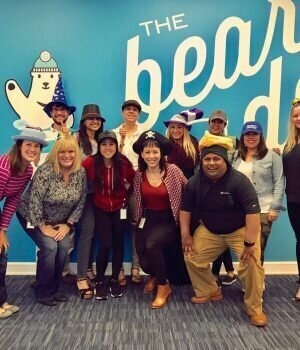The approach to finding a job, particularly in North America and Europe, has remained quite traditional for some time.
The process typically looks like this: find a job posting that is compatible with what your personal career goals are, create a resume to be submitted to the HR department, and write a cover letter that describes what your goals are and what your background is to show how compatible you are with the role.
How personal branding is replacing resumes and cover letters
The process of acquiring a job out of school has gradually changed. With so many students graduating from university and college each year, fewer and fewer opportunities are available to apply for on the traditional path.
There have been articles written that consider the process of personal branding to be very important in the modern era of recruitment because it allows employers to find your personal brand, interests and skills that they can use to see how compatible your personal brand is with their organization.
Here are a few ways to build a personal brand from scratch that can be used in order to advertise your personal interests, skills and education.
The goal in using these strategies is to sell your skills like commodities, and the target audience is potential employers.
Twitter is a great platform for meeting people and networking.
Lots of conversations between stakeholders and individuals take place on Twitter. It is very effective to use this platform to network, start conversations, and showcase any written content that you have recently published. One critical component to keep in mind is, before you start publishing and creating a non-defined brand, it is better to first take the time to figure out the answers to a few questions:
- What is my brand about?
- What key messages will I use to consistently identify my brand?
- What do I want people to say about my brand?
Any articles you publish, papers you write, or articles you think are worth sharing because of their compatibility with your brand are all effectively shared on Twitter.
An important factor to keep in mind about Facebook is that it is good to separate your brand Facebook page from your personal Facebook page.
Facebook is a universal platform that has developed into a mix of written and visual content. Depending on what your brand is, there may be a stronger demand for a visual component or a video component.
But if your personal page showcases content that is inconsistent with your brand, separating the two is beneficial to keep your brand as consistent as possible.
Staying informed about the key issues and trends that affect your brand is very important, so it benefits you to ‘like’ the pages of publications or companies that follow the same trends that your brand does.
Since viewers of your site are able to see what pages you have ‘liked’, keeping companies and publications on that list that are compatible with your brand helps employers further identify your brand and values.
The most important thing to remember is that
your brand values have to be consistent across all platforms you choose to use.
The personal branding process will make you easier to find online by employers that are looking for very specific skills when recruiting for jobs.
There are multiple reasons companies want to know how effective students are when it comes to online branding. Here are some as listed by Ryan Erskine, contributor for Entrepreneur:
- When it comes to making a brand identifiable with consumers, consistency is key. It takes five to seven impressions for someone to remember a brand.
- Of all recruiters, 95 percent believe that the job market will remain or become more competitive. If you don’t stand out online, your competition will. Knowing how to make a brand unique will only become more important in the coming years.
- Of all Internet users, 65 percent see online search as the most trusted source of information about people and companies. That’s a higher level of trust than any other online or offline source.
Online personal brands are replacing resumes and cover letters as the new tradition of identifying potential job candidates for companies.
Maintaining a strong online brand will, at least, make your skills more marketable to potential employers, and possibly allow you to attract stakeholders to build a business of your own.
What are your thoughts on personal branding? Have you had any positive experiences or has it got you a professional connection that has furthered your career? I’d love to know in the comments below.
For more business tips, check our entrepreneurship section and subscribe to our weekly newsletters.






